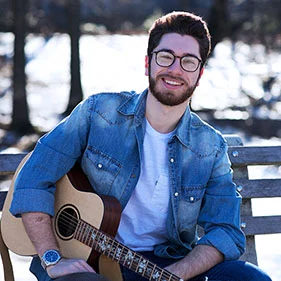The show goes on

I never went through an angsty period.
I managed to maneuver most of my adolescence without falling into a depression, being mad at my parents or breaking the rules. I had the support of my incredible family, good connections with my teachers and some of the best friends anyone could ask for.
But when I got to college, all of that disappeared. I arrived at Columbia University in 2016 — totally alone.
I consider myself to be an outgoing person, but even my ability to connect with new people had been severed. There was a gap between my hobbies, talents and maturity level and those of everyone around me.
Oh, no! Could it be? Oh, yes. My overdue angst arrived. I was completely unprepared for this new and strange feeling. I hated the character Holden Caulfield from “Catcher in the Rye,” so why did I now identify with him?
I tried to keep myself busy with the passions I had enjoyed in high school. I joined eight clubs and regularly participated in all of them. I took every class that looked interesting to me. I invited almost everyone I met to explore Manhattan with me on hours-long adventures on the weekends.
Now, I was certainly not bored, and I certainly had no reason to feel unhappy. Yet, there was some part of me that was still dissatisfied.
The semester ended and despite earning good marks, I still could not enjoy college. That changed my second semester when a friend invited me to have Shabbat dinner at Columbia/Barnard Hillel.
The moment I walked into the building, I felt at home. I connected with intellectual, friendly and warm Jewish students from every class.
And then Jaimie Krass, director of engagement at Columbia/Barnard Hillel, asked me to grab coffee that week.
After our coffee conversation, I became a regular at Hillel. And near the end of the semester, Jaimie asked if I would like to become involved in The Actualization Project, a fellowship that empowers students to use their passions to redesign the possibilities of Jewish life on campus.
I used the opportunity to mount an original space-western-comedy musical that I wrote over winter break. Completely unfazed by the monumental challenges that would face us, Jaimie hugged me and said, “Let’s do this!”
And we did.
With the help of the Hillel staff, we overcame technological and logistical hurdles to transform our main hall into a makeshift theater. This production was a dream that became a reality thanks to the nurturing environment we practiced in.
Our cast was a mix of Jewish and non-Jewish students from over four countries. Most of them had never acted or sung. They placed their trust in Hillel to encourage them to carry on with the production.
The play was a success, with more than 350 people filling the seats.
But most importantly, it brought 15 dedicated students to Hillel every day for months of bonding. Hillel created a new opportunity for students like me to spend quality time with close friends and to meet new ones. The staff has been so integral to my college experience that I don’t know what I would do without them.
The production allowed dozens of students who had visited Hillel to see what an amazing place it was. And some of them have become regulars like me.
I used to study alone in my room for hours at a time. But now I walk into Hillel, greeting everyone as I make my way to a quiet space to study. I find support and comfort in my peers — my friends. They alleviate any homesickness I might be feeling, and they are as supportive as my own family.
And that’s because, they are a part of my family.
David Treatman is a junior at Columbia University.